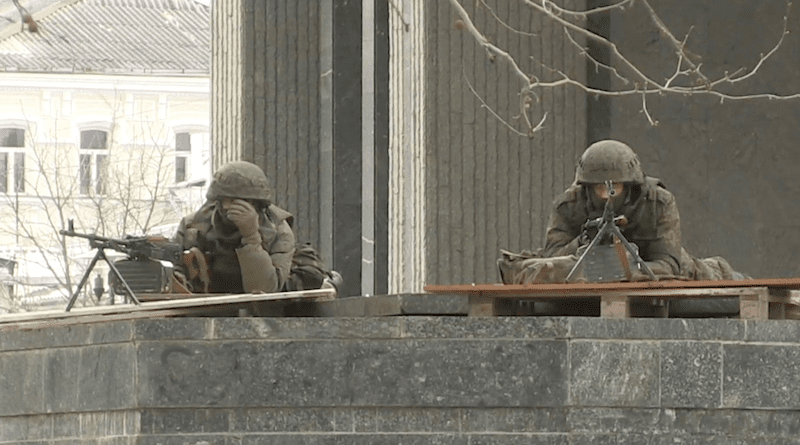2014 Annexation Of Crimea, Not 2022 Invasion, Turning Point In Putin’s Approach – OpEd
By Paul Goble
Many in Russia and elsewhere draw a sharp contrast between 2014 and 2022 as far as Moscow’s policies are concerned, but in fact, Dimitry Savvin says, what Putin did in the earlier year by annexing Crimea marked a far more important turning point in his approach at home and abroad and made the events of the latter year almost inevitable.
Had Putin in 2014 limited himself to detaching Crimea from Ukraine and allowing it to become yet another unrecognized state, the editor of the Riga-based conservative Russian Harbinportal says, the West might have been willing to look the other way. But by annexing it, the Kremlin leader challenged the entire international order (harbin.lv/krymskaya-traektoriya).
At the same time, because his act of annexation was so popular among Russians, Putin was able to regain much of the support he had lost and successfully introduce the paradigm into Russian politics that “being against the Kremlin means to be a Russophobe and a traitor,” an attitude that he has used to increase repression at home.
To put things briefly, Putin’s “annexation of Crimea made inevitable” the expanded invasion of Ukraine, the further deterioration of relations with the West, and the destruction of civil freedoms inside the Russian Federation. Consequently, it is fundamentally wrong to see 2014 as something positive and 2022 as different and in a negative light.
Without a clear-eyed understanding of this, Savvin says, the war in Ukraine will continue as long as Putin is in power and until Crimea is restored to Ukraine one way or another, and there will be no path forward to a health conservatism or political nationalism in Russia, something essential to its progress.

